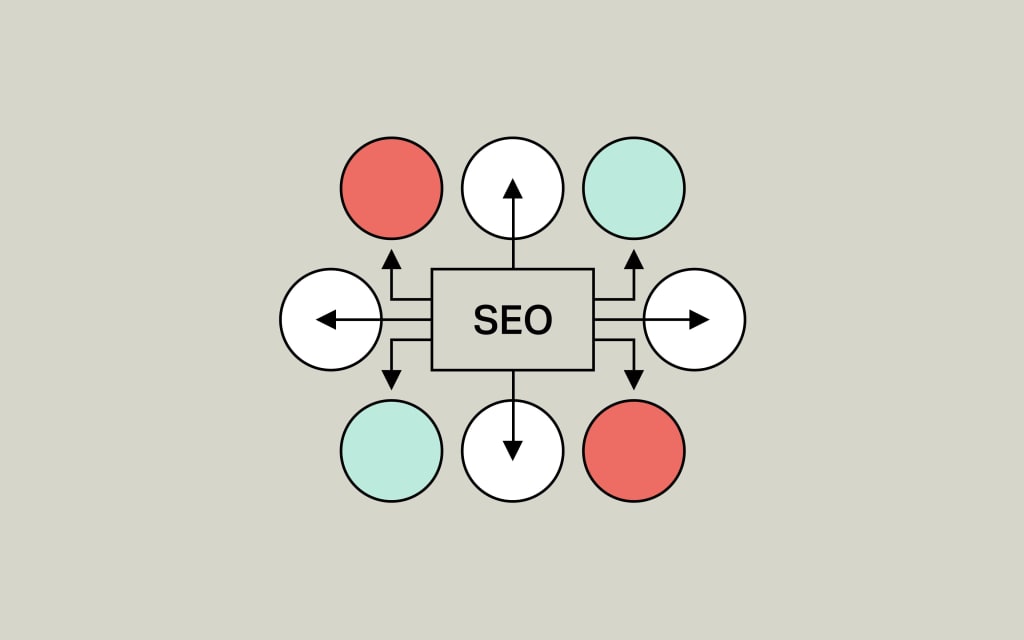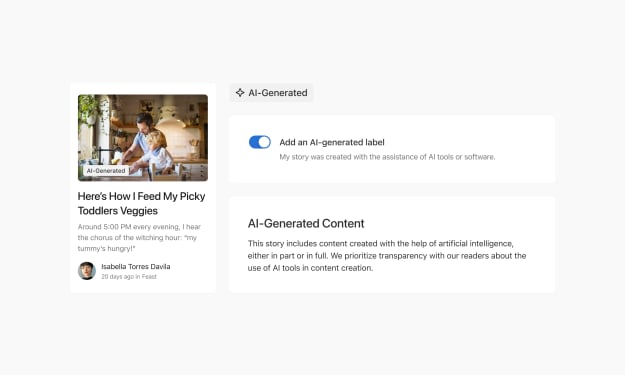Best SEO Practices for Writing
Write your way to the top of Google search ranking by knowing the best SEO practices.

Search engine optimization (SEO) is a term that can make any writer sweat. To the unfamiliar ear, “best SEO practices” sounds like it belongs with the terms, “synergize”, “platform,” and other such tech-y terms the characters on Silicon Valley talk about. For some reason, SEO makes the most talented writers cringe for fear of ticking off almighty Google.
Dear Reader, have no fear, because SEO is the modern writer’s best tool. Understanding its rules and implications is essential in making your work stand out, rank, and get some well-deserved eyeballs.
Here's the first best practice for SEO: It's not a complicated process.
Therefore, all you need to do is grasp the fundamentals of SEO. You don't have to earn a PhD in SEO. You just need to follow basic best SEO practices to become an SEO Jedi Master. Maybe one day you’ll have even have a Padawan to teach...
With more than 3.5 billion online readers forming your potential audience, well-written content that implements the best SEO practices gets your work ranked at or near the top of Google search rankings. Writers that optimize online articles and blog posts for Google's powerful search engine develop the most important writing skill of all.
Let's review the basic best SEO practices:
The Key for Integrating Keywords
Keywords represent the words and phrases that people input into Google's search engine. Although the importance of keywords has somewhat diminished, targeted keywords still play a role in bolstering your SEO efforts.
Don't get caught up trying to force keywords into content. Let keywords naturally flow within your brilliantly conceived prose. Add primary keywords to the title of your piece, as well as close to the beginning of the first sentence. If you're unsure of what keywords to insert into your content, there are numerous online resources to help you narrow down your keyword search.
For example, this article features “Best SEO Practices” as its long-tail keyword.
SEO experts believe keyword density should fall between one and two percent. Article and blog post length determines how many times you insert the primary keyword. We recommend inserting your keyword every 250 to 500 words.
Speaking of content length, data released by HubSpot demonstrates that articles and blog posts that exceed 2,000 words do the best job of gaining backlinks and social shares. Write more, not less!
Headings Matter to Google
Google likes to see well-organized content that includes several sections highlighted by captivating headings. Headings give your articles and blog posts structure, which is a very important SEO criterion for Google bots that scan your content. The bots immediately identify the main points you're trying to make by scanning article headings. Headings represent a great way to integrate primary and secondary keywords.
More on Structure
Google bots scan content for easy to read structure. Disjointed content that confuses readers significantly reduces your SEO by producing poor reader feedback and high bounce rates. Well-structured articles and blog posts include a short introduction that gives the readers a glimpse of what is to come, without giving away the whole article or blog post. The body of the piece follows in the form of sections that discuss one point. At the end of an article or a blog post, write a short conclusion that ties everything together.
A Picture is Worth 1,000 Words
Well, the timeless adage is a bit of hyperbole, but you get the point. Images offer you an effective way for Google to notice your online writing. Search for the highest quality images that educate your readers. You're not searching for images that would make Steven Spielberg proud.
One of the best SEO practices is to find unique images that add substance to your written words. Search for high quality images on social media sites such as Twitter, Tumblr, and Instagram, instead of finding images on Google. To optimize your images for Google's search engine, change the title found in the image field to something that reflects one of your keywords. Check out our article on Choosing Images for more information.
Writing One Point Paragraphs
Online content that includes paragraphs that present multiple points confuses readers. Even worse is the bad SEO practice of starting a new paragraph that continues emphasizing the main point from the previous paragraph. Google also likes content that includes transitional words and sentences that vary in style. Long-winded and short, choppy sentences hurt your SEO strategy. If you're an accomplished writer, mastering the art of changing up sentence styles for SEO shouldn't pose a problem. You have naturally implemented one of the best SEO practices.
Google Rewards Links
Links to credible sources within your content scores you points with Google's search ranking algorithm. Another linking strategy involves linking to previous articles or blog posts that you wrote. By adding links to other content pieces, you keep readers on your content longer and Google notices the increase in traffic. You probably hear a lot of talk about backlinks, which represent links to your web pages from other websites. Backlinks bolster SEO, but you have to ask other webmasters to link to your post.
However, if you produce content that captivates readers and helps them solve problems, other webmasters start linking to your content to establish credible sources for information.
SEO has evolved over the years to incorporate more writing techniques and less technical jargon, such as keyword density. If you follow the most basic best SEO practices, you have a head start over most other online writers. Writing to optimize your content is especially critical for creating exposure for small businesses. The best SEO practices put small businesses on a more even competition level with larger companies and corporations.
One more thing: Writers are starting to hear and read about the importance of local SEO. Let's save that topic for another post...
About the Creator
Vocal Team
By creators, for creators.





Comments (2)
I feel like I know SEA a bit more now.
Wow this is amazing content. My question is can my contents on vocal.media rank on Google?